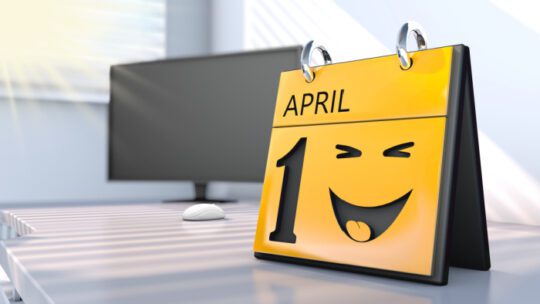
April Fools' Day is just around the corner, which means the internet will soon be inundated with companies releasing mock headlines, parody videos and joke press releases to raise their brand awareness.
Along with these practical jokes inevitably come the naysayers insisting consumers are sick of the gags, and that the effort brands put in are not worth the potential blowback of their stunts. Others argue that a well-executed April Fools’ joke is a simple, light-hearted way for brands to interact with the public, elevate visibility and show their sense of humor and relatability.
Both sides present fair arguments, depending on how a brand approaches and executes its April Fools’ campaign. If done correctly, it is an effective tool to increase positive brand sentiment. If not, it could cost the brand its reputation or financial loss.
Brands should keep in mind these important do’s and don’ts:
Do: Make it Simple and (Actually) Funny
Uncomplicated originality is key in making sure an April Fools’ joke is actually funny. This means spending time testing it on a variety of audiences to ensure that it will resonate with the intended target market and the public at large.
Back in 1996, Taco Bell made history. The brand announced through minimalistic, black and white ads across America that “in an effort to help national debt” it would be purchasing the Liberty Bell in Philadelphia and renaming it the Taco Liberty Bell. The reaction was immediate and brought tons of attention to the brand. It was simple, funny, and effective — with sales reportedly spiking by over a million dollars in the two days following the ad.
Don't: Lie About Your Products or Services
There is a fine line between a joke announcement and a lie, and when companies tread on the wrong side of that line they will end up angering their customer base and eroding trust.
In 2021, Volkswagen announced that the company would change its name to Voltswagen to show its commitment to electric vehicles. Major news outlets covered the announcements and many who spoke directly with Volkswagen were ensured the story was real. When the company announced it was a hoax, the backlash from the media and public was swift and severe. The prank was viewed as especially distasteful given the company was involved in a massive fraud scandal just four years prior.
Do: Stick to April 1
Launch your campaign on April 1 and announce the prank on April 2 or sooner to avoid frustration or confusion from customers.
Scope learned this when it announced its bacon-flavored mouthwash, a week before April Fools' Day. The early prank wasn’t immediately associated with the holiday, and Procter & Gamble insisted it was a real product. Surprisingly the idea of bacon mouthwash was appealing to many and when this was revealed as a hoax, Scope found itself consumed with customer complaints.
Don't: Upset or Offend Your Audience
Brands need to be very careful to not upset or offend their audiences. They need to research cultural and political trends and anticipate all the ways the joke could play out.
Google’s “mic drop” prank in 2016 was not politically or culturally insensitive, but they did upset a massive audience. The company added a special send button in Gmail that appends a GIF of a minion dropping a microphone to the end of the email. The button was so seamlessly integrated that it was easy to unintentionally send the GIF. Google was flooded with complaints that the prank negatively interfered with business correspondences, and many even reported that it resulted in them losing their jobs. Google had to quickly pull the feature and issue an apology.
Announcing an April Fools' joke can be a fun way for brands to connect with their audience and show off their creativity. However, it's important that brands approach the holiday with caution and careful planning to maintain their integrity and credibility.
Lauren Hovey is SVP at Clyde Group
